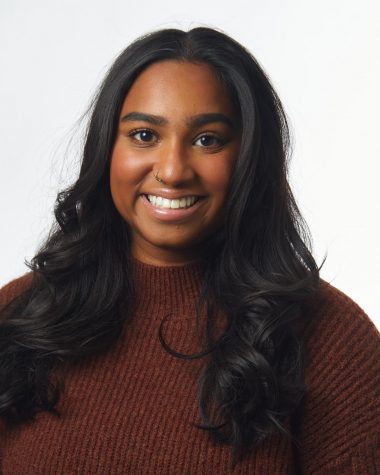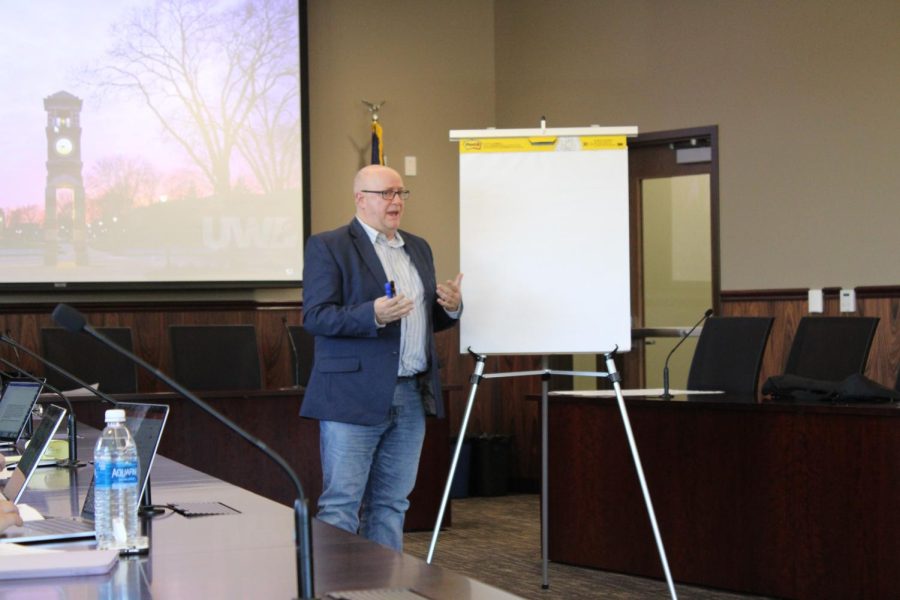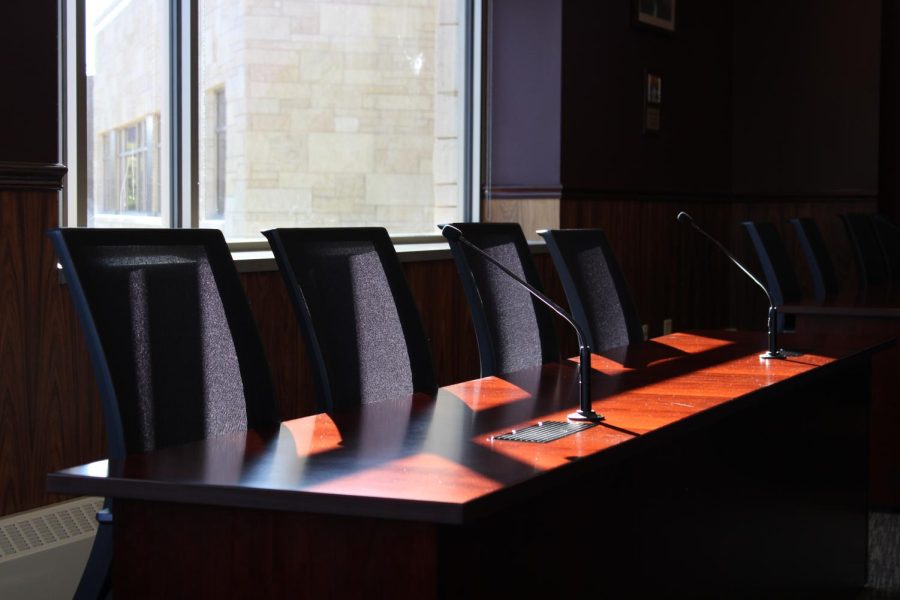UWL faculty and students gather to discuss the Menard Center campus free speech survey
Eric Giordano from the Wisconsin Institute for Public Policy and Service, facilitates group discussion.
On Tuesday, Sept. 27, an open forum was held in the University of Wisconsin-La Crosse’s senate chambers, to discuss surveying all students within the University of Wisconsin System about whether they feel campuses support freedom of speech and freedom of expression.
Students from UWL’s School of Education (SOE) got the administration’s attention last semester, after writing controversial messages in chalk around the Hoeschler Tower, regarding issues within SOE.
The Student Association (SA) discussed the issue throughout various times last semester, even asking experienced faculty members to come in and discuss the legal nature of the chalk with them.
Last year at SA’s final meeting of the semester, Assistant Professor of Political Science & Public Administration James Syzmalak said, “It doesn’t matter that it is chalk or a ballpoint pen, the First Amendment is the First Amendment. Using ‘dirty’ language is not unsettled and it’s not a recent development.”
A group of researchers from various different Wisconsin university departments has created a survey addressing first amendment rights. They would like as many undergraduate students as possible, from each of the thirteen UW System schools, to take it.
The study, entitled ‘Student Perceptions of Their First Amendment Free Speech Rights, Viewpoint Diversity, and Self-Censorship,’ is sponsored by the Menard Center for the Study of Institutions, and the survey has been designed in collaboration with the Wisconsin Institute for Public Policy and Service.
Timothy Shiell, UW-Stout philosophy professor and director for the Menard Center for the Study of Institutions and Innovations, said there is a reason for keeping the research and survey inside campus walls.
“There was concern that if we didn’t do this as scholars, if academics didn’t do it, someone else might,” said Shiell.
According to an article by Wisconsin Public Radio (WPR), the survey will include questions pertaining to opinions on diversity; whether giving voice to unpopular or offensive viewpoints encourages healthy academic dialogue; and whether they have felt pressured by a professor to agree with a specific political or ideological opinion discussed in class.
The survey also asks students to consider hypothetical scenarios, and whether the behaviors are protected by the First Amendment, or not. The researchers describe the questions as “a series of primarily close-ended rating scale survey items, supplemented by a few open-ended text boxes.”
During the forum, concerns were raised about the length of the survey and whether or not college students will take the estimated 10 minutes needed to complete it.
The survey does not include any identifying information, and responses will be completely anonymous and confidential.

Year at UWL: Senior
PGPs: She/Her/Hers
Hometown: Marshfield, WI
Major: Communication Studies with an emphasis in public communication and...


